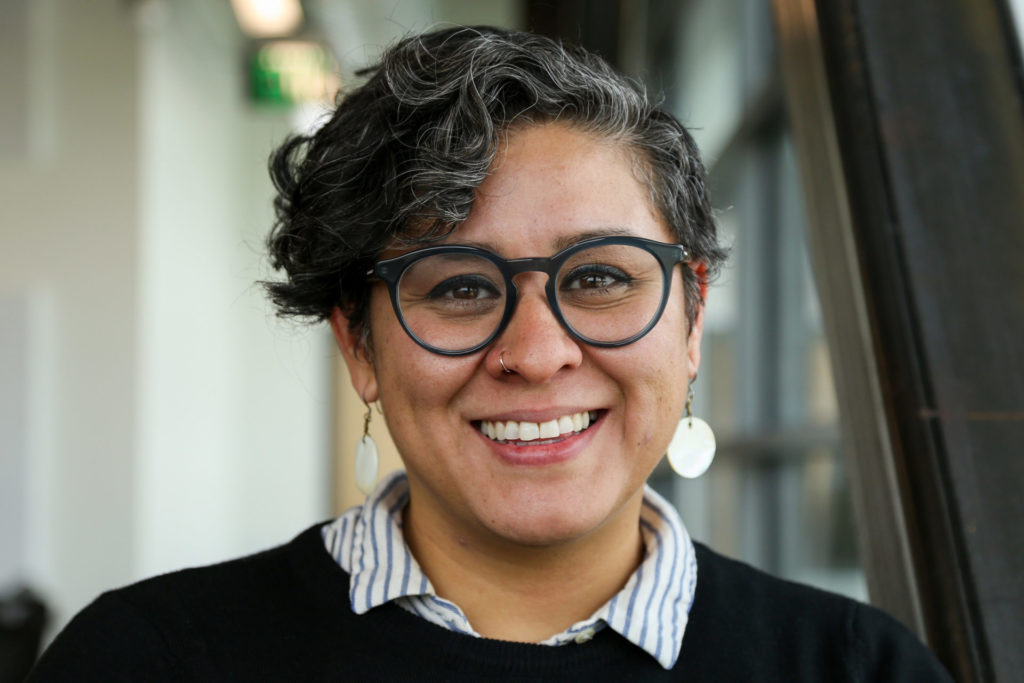 Colorado State University’s School of Education is pleased to welcome postdoctoral fellow Christine Vega to its faculty. Vega works with the Center for Educator Preparation and the Caminos program, focusing on culturally responsive and sustaining teaching, research, and curriculum review and development.
Colorado State University’s School of Education is pleased to welcome postdoctoral fellow Christine Vega to its faculty. Vega works with the Center for Educator Preparation and the Caminos program, focusing on culturally responsive and sustaining teaching, research, and curriculum review and development.
Personal experience leads to lifelong passion
Vega grew up in Los Angeles, California, and was tracked through remedial classes instead of Honors or Advanced Placement throughout her K-12 experience. As a high school student, Vega was uninterested in education until she realized that she could still work towards college.
“I realized that if I worked hard, I was as good as the other students who were in Honors and AP classes and were tracked towards college pathways,” Vega said. “I realized how upset I was that nobody gave me an opportunity to think about college or what my options were until it was too late.”
Vega was able to attend Los Angeles Mission College under a program that allowed students who were considering college but hadn’t gotten into a four-year university to attend a summer transfer program at the Center for Community College partnerships, at the University of California, Los Angeles. These students then follow a community college pathway. After the program, Vega transferred to UCLA, majoring in Chicano/a studies and women and gender studies. Her undergraduate work inspired a connection with her history and an understanding of educational inequities, especially regarding Chicanx and Latinx communities.
“I became super involved in connecting with my history in education,” she said. “Then I started connecting the dots and began to understand that there are educational inequities in communities of color like mine, and that my experience was not unique. I got really enraged and decided that I was going to continue my work.”
Vega earned her Ph.D. in education at UCLA, focusing on social sciences and comparative studies and concentrating on race and ethnic studies. Her dissertation was focused on Motherscholar Activism, specifically Chicana, Latina, and Indigenous Mother scholars who were enrolled in doctoral programs in the U.S. Southwest, and their experience maneuvering through visibility and invisibility within higher education institutions as pregnant Women of Color.
Creating a space for diversity and discussion
As a postdoctoral fellow, Vega hopes to implement her research and encourage collaborative work that strengthens diversity and discussion.
“Because of my training in Critical Race Theory in Education and Chicana Feminisms, my work in the community and my research have always been collaborative,” she said. “That’s something that’s really powerful within the different units here at the School of Education. Folks work in collaboration, and that’s how the different programs I’m part of have functioned. I think that’s what I can bring to the table, but I also think I can bring something different as the School tries to reach students who identify as I identify, allowing me to bring an additional lens to the work that’s happening here in CEP and the Caminos program.”
Vega hopes to return to her roots and become a full-time professor in Los Angeles to contribute to the community that inspired her and to continue to help others be seen within the education system.
CEP works to prepare and equip future teachers and principals by partnering with local school districts to provide the ability to gain real experience with real students and interact with current teachers. Caminos: A Latina/o Pathway Program to Higher Education is an educational pathway program for Latinx high school students to graduate from higher education institutions. The program focuses on the needs of students, and provides access to understand higher education opportunities while affirming cultural assets.
The Center for Educator Preparation is housed in the School of Education, part of CSU’s College of Health and Human Sciences.